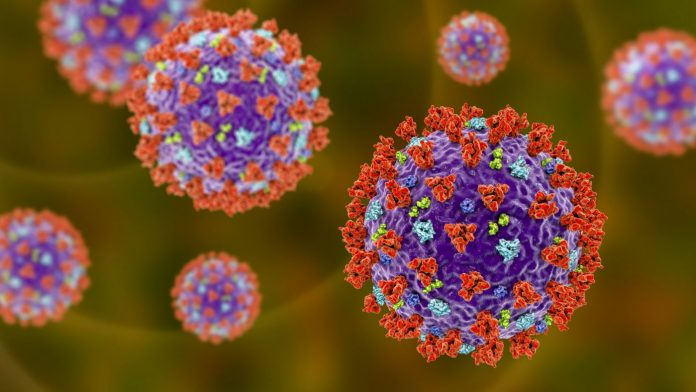
Young adults and adolescents that suffered from rare cases of myocarditis following vaccination with a mRNA-based COVID-19 vaccine had increased levels of the viral protein spike in their bloodstream, found a recent study carried out by a team at Brigham and Women’s Hospital and Massachusetts General Hospital. However, it also concluded that the benefits of COVID-19 vaccination still greatly outweigh the risks.
Myocarditis occurs when heart muscle tissue becomes inflamed, often resulting in chest pain and fatigue. It is observed in a number of conditions including viral infections and inflammatory diseases. In extremely rare cases—roughly one or two people per 100,000— myocarditis can result from vaccination by an mRNA COVID-19 vaccine such as those developed by Pfizer and Moderna.
The reason why mRNA vaccines occasionally trigger myocarditis remains unclear, and unraveling the mystery could lead to more effective treatments for these rare cases.
In the study, published in the journal Circulation, the research team recruited 61 adolescents and young adults: 15 that developed myocarditis after being given the Pfizer BNT162b2 or Moderna mRNA-1273 COVID-19 mRNA vaccines, and 45 healthy, vaccinated and age-matched volunteers. The researchers then screened blood samples from the participants to profile their immune system, including testing for autoantibodies and antibodies against human viruses, analyzing T cells and measuring blood levels of cytokines and SARS-CoV-2 antigens such as the spike protein.
The research team discovered that the myocarditis patients had indistinguishable antibody responses and T cell responses to those of the controls, such as antibody production, autoantibodies and T cell profiles. However, they found that the myocarditis patients had elevated levels of the spike protein in their blood, which had seemingly evaded the immune response. In contrast, the healthy controls showed no detectable levels of spike protein in their blood. Additionally, the myocarditis patients had higher blood levels of cytokines—an indicator of innate inflammation—and troponin, a sign of injury to the heart.
“The risk of developing severe disease from acute infection significantly outweighs this rare risk,” stated Lael Yonker, pediatric pulmonary medicine specialist at Mass General for Children, and first author of the study. “While this finding helps us better understand this potential complication, it does not alter the risk benefit ratio of receiving the COVID vaccines. The incidence of myocarditis and other heart-related complications among children infected with SARS-CoV-2 is much higher than the risk of post-vaccination myocarditis.”
The authors also noted it remains unclear whether the circulating spike protein was the cause of the myocarditis observed in these patients. Rare cases of myocarditis can occur after receiving vaccines for other conditions such as smallpox, so the spike protein could have been a biomarker of underlying immune dysregulation leading to the symptoms.
“This was a precious sample set because these cases are so rare,” stated co-corresponding author David Walt, professor in the Brigham’s Department of Pathology. “We studied them in great depth, which led to an interesting finding that could guide treatment strategies to reverse post-vaccine myocarditis.”
Previously suggested causes for post-vaccine myocarditis include aberrant immune responses to the vaccine, the production of autoantibodies, or potentially spike protein mimicking self-antigens, leading the immune system to attack heart tissue. Another factor at play is that myocarditis affects young men more than young women, which could be explained with hormonal mechanisms. Nonetheless, Yonker and Walt et al. found circulating spike protein in female patients as much as in male patients.
The authors acknowledged limitations in their study, with a myocarditis group sample size of just 16. However, given the rarity of these cases, it was to be expected.
In any case, the study continues to hammer home the point that vaccination for COVID-19 carries much fewer risks than infection by the virus, including for adolescents and young adults.
“In most cases, post-vaccination myocarditis is mild and self-resolving,” said Yonker. “But new insights about its cause could further help us to improve patients’ symptoms or prevent this complication from occurring.”













